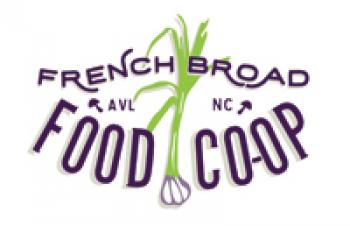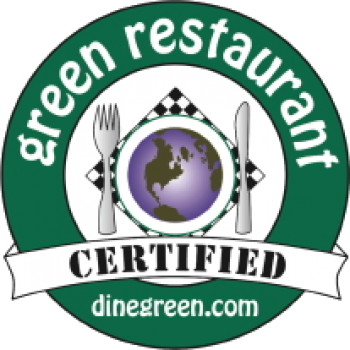Green businesses adopt principles, policies, and practices that improve the quality of life for their customers, employees, communities, and planet. But just because a business claims they are “green” doesn’t mean they uphold the standards of social responsibility and sustainability. So how can you determine what is in fact a sustainable business, or how can your business achieve that high standard?
That’s where third-party certifications come in. A third-party certification serves to verify a business’s claims against their independently developed criterion. Such certifications reduce conflicts of interest and provide accountability to a business’s claims.
Green America's Green Business Certification is the leading trust mark for true green business practices. Our program recognizes businesses that excel in social and environmental responsibility, and the businesses found in our Green Pages directory have met or exceeded our certification standards to become leaders in the green economy.
The Green Business Network at Green America recommends businesses consider both environmental and social justice issues when making decisions. To earn our certification, businesses must meet both standards of social and environmental responsibility. If you are interested in becoming a green business, we’ve highlighted a few important steps—and if you’ve reached these steps, check out the full requirements of our Food certification. You may be ready to apply.
Environmental Responsibility
"Green" or sustainable business make planet health a core part of their mission. The following steps are ways your food business can account for environmental responsibility in its operations.
Go Organic, Non-GMO, and/or Fairtrade.
At least 50 percent of your ingredients are from one of these categories: USDA Organic; grown within 100 miles of production/processing/packaging site; fair trade certified, or Non-GMO Project Verified. Your ingredients cannot include GMOs, including animal feedstocks. You must be working towards the reduction of pesticides, herbicides, and fertilizers on farms where ingredients are produced. You can find the USDA Organic guidelines here and the Non-GMO Project verification here.
Partner with food co-ops, farms, and farm shares near you.
This often helps businesses achieve step 1, because smaller, local farms tend to focus on holistic agriculture. We prefer businesses that participate in a sustainable agriculture initiative, organization, network, or coalition—depending on your partners, you may meet this criterion. You can also find food hubs at the USDA Food Hub Directory. Food hubs are the connection between local producers and consumers, so plugging in with them can build the relationships between your business and the local food scene. Ask these farms if they are certified organic by the USDA and/or the Non-GMO Project or, if sourcing internationally, ensure your partner is Fairtrade or will be going through a Fairtrade certification and if they refrain from pesticides and GMOs.
Ensure the Safe and Humane Treatment of Animals.
If you have animals in your supply chain, they must be free of growth hormones and the use of combined Animal Feeding Lots. By choosing USDA Organic, cage-free, free-range, and antibiotic-free, you are ensuring the health and safety of the animals. Similarly, if you produce and/or sell honey, extraction must minimize bee mortality.
Reduce Packaging Waste.
Restoring and protecting the environment includes responsibly handling your packaging waste. We recommend either reusable or made from recycled materials, such as recyclable cardboard, recycled plastic, or aluminum. Businesses that recycle, compost, or reuse all residues and waste materials from harvest and processing are leaders in sustainability.
Social Responsibility
Triple bottom line businesses are not only planet-kind, but they are also kind to people—hence, social responsibility. The following points are a handful of ways your business can be an ethical one.
Uphold Transparency.
While we value integrity at all points in the supply chain, transparency in your ingredients promotes trust between you and your consumers. An accurate and complete list of ingredients, as well as information related to diet and personal health concerns on each product, uphold that transparency. This goes for products off and online.
Respect Workers.
If coffee, tea, chocolate, or olive oil are among your products or a primary ingredient, they must be either fair trade certified or include an explanation of how Fairtrade principles are upheld in production. The proves that overseas workers are respected and paid fairly. We condemn child labor in planting, harvest, and processing. For food that is not fair trade certified or produced locally, it must comply with the Fair Labor Association’s Code of Conduct.
Bonus: Serving the Community
Going the extra mile to invest back into the community is always applauded, such as providing a service for underserved communities and public health education. We are always interested to see the different ways businesses give back!
Why Certify?
In a sea of businesses claiming to be “conscious" or "natural," it’s hard for the average consumer to weed out the green from the greenwashed. Third-party certifications prove that your business has withstood the vetting of an outside body and come out as a truly socially and environmentally responsible business.
While these requirements are comprehensive, they are not definite. We love seeing businesses exceed these standards and take steps beyond certification to be even greener. In addition, our certification analyzes business practices and not individual products. We believe a sustainable future is also an ethical one and ensure the businesses that earn our certification reflect that.
If you have met these criteria, you can view the full requirements for Food businesses at our Food certification standard and begin the process of becoming a member and official sustainable business.






